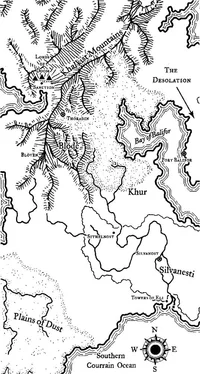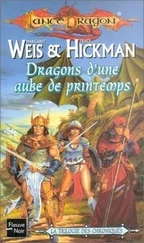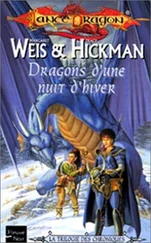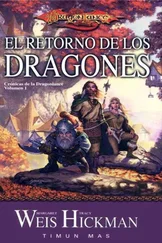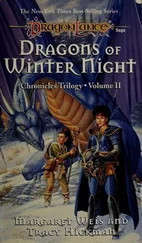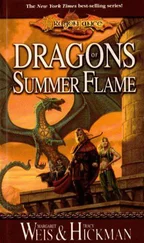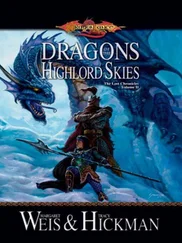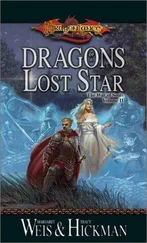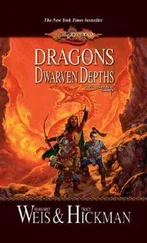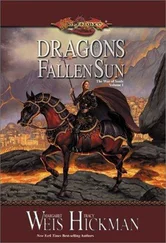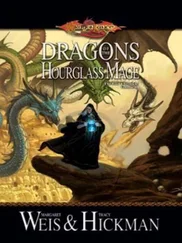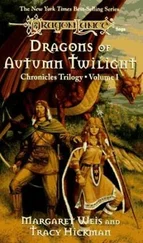Margaret Weis - Dragons of Vanished Moon
Здесь есть возможность читать онлайн «Margaret Weis - Dragons of Vanished Moon» весь текст электронной книги совершенно бесплатно (целиком полную версию без сокращений). В некоторых случаях можно слушать аудио, скачать через торрент в формате fb2 и присутствует краткое содержание. Жанр: Фэнтези, на английском языке. Описание произведения, (предисловие) а так же отзывы посетителей доступны на портале библиотеки ЛибКат.
- Название:Dragons of Vanished Moon
- Автор:
- Жанр:
- Год:неизвестен
- ISBN:нет данных
- Рейтинг книги:4 / 5. Голосов: 1
-
Избранное:Добавить в избранное
- Отзывы:
-
Ваша оценка:
- 80
- 1
- 2
- 3
- 4
- 5
Dragons of Vanished Moon: краткое содержание, описание и аннотация
Предлагаем к чтению аннотацию, описание, краткое содержание или предисловие (зависит от того, что написал сам автор книги «Dragons of Vanished Moon»). Если вы не нашли необходимую информацию о книге — напишите в комментариях, мы постараемся отыскать её.
Dragons of Vanished Moon — читать онлайн бесплатно полную книгу (весь текст) целиком
Ниже представлен текст книги, разбитый по страницам. Система сохранения места последней прочитанной страницы, позволяет с удобством читать онлайн бесплатно книгу «Dragons of Vanished Moon», без необходимости каждый раз заново искать на чём Вы остановились. Поставьте закладку, и сможете в любой момент перейти на страницу, на которой закончили чтение.
Интервал:
Закладка:
Chislev, Lady of the Woods, concerns herself with the natural world of Krynn, as it is and for its own sake rather than as a reflection of Good, as is true of Habbakuk; nor does she attempt to dominate nature and use it as a weapon, in the manner of Zeboim. She concerns herself above all with the plants and trees of Krynn, more so than the beasts of the world. Of all the Neutral powers, she is perhaps the most likely to intervene in the affairs of the world, trying to protect nature from the ravages of Evil or the unintended damage caused as a side effect when Good defends itself and the world against the assaults of darkness.
Zivilyn, Seeker of Wisdom, is aide to Gilean and companion to Chislev. Unlike Gilean, who pursues knowledge of what is outside mortals, Zivilyn encourages mortals to look within, finding wisdom in their own hearts. His approach sometimes brings tranquility, sometimes madness. Zivilyn sees both as viable paths to self-knowledge and enlightenment.
Last and seventh among the gods of Neutrality is Lunitari, Lady of the Crimson Moon and Red Sorceress. As the Mistress of Red Magic, wizards of the Red Robes pay her homage. Lunitari has a fondness for illusion and trickery, which makes her favored by confidence men, but her primary concern is magic for magic’s sake, rather than as a part of the order of creation or a tool for her own domination.
With Chaos banished, Takhisis, Queen of Darkness, became the foremost opponent of Truth and Light upon Krynn. It is said by some that she betrayed Chaos and stole much of his power. What is generally accepted is that she inherited his megalomaniacal pride. She sees herself as the center and rightful master of all creation. Though she finds this, the queen of vices, distasteful in others, it is useful in tempting mortals away from the High God and into her clutches. The Dragon Queen also retains an interest in lust. She seeks disordered pleasures of the spirit—adoration and submission—for herself, and she stirs up disordered desires for pleasures of the flesh in mortals, so as to more easily entice them down the path of darkness. Sargonnas the Vengeful stands next to Takhisis in the courts of the gods of night, and resents this deeply. Indeed, Sargonnas resents every slight and insult, and thus he is dominated by the vice of wrath which he champions, encouraging rampant bloodshed and harsh punishment for the slightest offense. Blue dragons, who evince fiery tempers, are his special favorites. Chemosh, the Lord of the Undead, stands as counterpart to Majere and a master of wicked counsel. He specializes in sloth, that chill of the spirit that quenches the flames of love and faith and, while promising comfort and ease, turns life into a cold, joyless, loveless mockery. In many cases, this culminates in the shadowed life of the undead that Chemosh nurtures and cherishes. The white dragons, prone to this same coldness and long slumbers, are often associated with the Prince of Bone.
Morgion the Seething dwells alone. He lost the glory and majesty that he so prized in the early days, when he chose to stand with Takhisis in her rebellion. He was wounded in the All-Saints War, reduced to wrack and ruin. Like his fellow gods of Evil, he both suffers from and encourages his particular vice. In his case, it is the sin of envy, which resents the good of others and seeks to reduce all to common misery. Morgion especially enjoys the spread of disease, which causes suffering of the flesh, and deceit, which often brings about torture of mind and soul. Any who feel themselves injured by the good of others or seek to bring someone low find the Spreader of Disease a ready ally. Because of this, he is favored by the spiteful green dragons, who resent and hate virtue and desire to cause pain and anguish in body and spirit. Hiddukel, Prince of Tarnished Gold, is perhaps the most often invoked of all the Evil Powers, being the patron of avarice. Thus he is honored by thieves, corrupt merchants, and all seduced by the lure of gold. Hiddukel does much to foster this devotion, being himself dominated by the greed for souls. Red dragons, the most avaricious of all their kind, often pay tribute to Hiddukel and seek his aid in their acquisitions.
Zeboim, Lady of Tempests, pays scant attention to the intrigues of the gods or the affairs of mortals. As representative of gluttony, she spends much of her time trying to consume as much as she can beneath the seas of Krynn, ranging from individual sailors to entire ships, cities, or islands. Black dragons are her pets, due to their love for water and their own insatiable hungers. Nuitari, Master of the Dark Moon and Black Wizard, stands last among the gods of Evil. Desiring recognition and prone to vanity, he fosters the growth of black magic and attempts to choke out the work of Solinari and Lunitari so that he alone will be recognized as the source of magic in the world. His followers are often obsessed with increasing their magical abilities, becoming the greatest wizards in history, and being feared or revered as such.
The Creation of Mortals
When the All-Saints War was brought to an end, the Firstborn mortals were created on Krynn, male and female.
All mortals spring from the thought of the High God and have their souls created by him. The gods of Good and Neutrality, as well as the High God himself, bestowed gifts upon the first parents to help them function in the world and achieve their destinies. The gods of Evil, though, were at work from the beginning of these new mortals’ lives, and though they also promised gifts, they in truth lured the Firstborn to fall from their original state, be weakened in body and soul, and be cast under the shadow of the Dragon Queen.
Whether the three oldest races were created distinct from each other, or diverged from one father and mother into three races at some point in history, is a matter best left to your scholarship and dispute. Suffice it for now that within the earliest generations, elves, ogres, and humans were all present on Krynn.
Of the three races, the elves proved most faithful to the High God and least seduced or deceived by the wiles of Takhisis. Thus, they have retained many of the original gifts, such as a long lifespan, physical health, and a clearer, more focused will. Their greater control of their passions makes them less likely to succumb completely to the temptations of Evil, although they still must guard against that weakness. Pride, selfishness, and sloth are the most dangerous characteristics of elvenkind.
The Irda, being strongest and physically most beautiful of the races, were coveted by the Dark Queen, who expended much effort to seduce them, and largely succeeded. The Irda did not lose their physical or mental gifts immediately, yet their will and intellect were darkened, and a seed of decay was planted within them, which would bear bitter fruit in the Age of Dreams. Thus did they become ogres.
Regardless, ogres retain a crude moral sense and a capacity to choose Good. However, while there are differences in ogrish cultures,especially those before and after the collapse of the last ogre empire and the historical decline of their race, all ogres exhibit anger, vanity, avarice, lust, and gluttony. Most ogres shrug off concerns about “Good” and “Evil” and willingly enslave themselves to their desires. Despite this, ogres still must be dealt with in a compassionate fashion, for they are not wholly Evil nor irredeemable.
Humans occupy something of a middle ground, neither as committed to Good as the elves nor as enslaved by Evil as the ogres. Despite this, humans have the greatest potential for either Good or Evil and are often the key movers in the historic events of Krynn, as they have achieved the greatest glory and goodness, yet also fallen into the most appalling depravity. And so the Age of Starbirth ended and the Age of Dreams began, with the gods of Good determined to do their best to realize a wondrous future for Krynn.
Читать дальшеИнтервал:
Закладка:
Похожие книги на «Dragons of Vanished Moon»
Представляем Вашему вниманию похожие книги на «Dragons of Vanished Moon» списком для выбора. Мы отобрали схожую по названию и смыслу литературу в надежде предоставить читателям больше вариантов отыскать новые, интересные, ещё непрочитанные произведения.
Обсуждение, отзывы о книге «Dragons of Vanished Moon» и просто собственные мнения читателей. Оставьте ваши комментарии, напишите, что Вы думаете о произведении, его смысле или главных героях. Укажите что конкретно понравилось, а что нет, и почему Вы так считаете.
